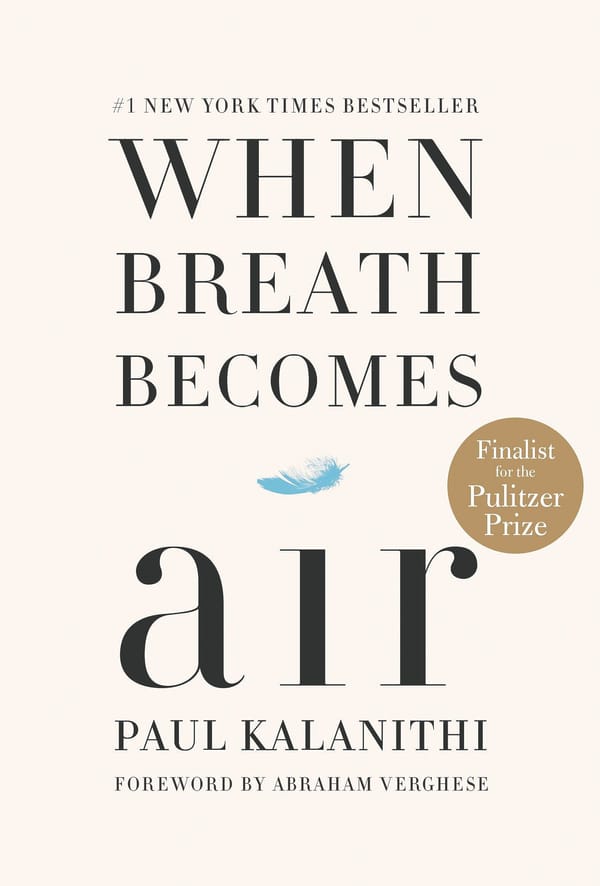A new element of success - grit.
Books Editor Hari Kumarakuruparan shares his views on Angela Duckworth's self help book, grit, delving into what it means to be truly gritty.

Grit
★★★★
- What: Book
- Where: Amazon
- When: n/a
- Cost: £7.58
With the country facing yet another lockdown, being a student at Imperial just became that much more difficult. The lack of face-to-face contact with friends, and society events being put on pause, it all seems, well, dismal. With that being said, I’ve brought along a solution – Angela Duckworth’s recent publication, Grit.
Grit is not a word we often come across; however, the Pennsylvania Psychology Professor and MacArthur Fellowship winner has undeniably crafted a whole new meaning for it. Through her experience as a teacher, consultant and researcher, Duckworth unwraps a fundamental element for success often overlooked – grit. The quality of ‘putting one foot in front of another… to invest, day after week after year, in challenging practice … to fall down seven times and rise eight.’ Through these interpretations, Duckworth builds grit to be more than just a verb, but a way of life for the successful. The idea of being this unstoppable, unrelentless force that keeps going no matter what obstacle is in its path, in good times and in bad, Duckworth makes it clear that grit is an important indicator of success.
One of the many impressive studies Duckworth enlists is the use of the grit scale when trying to predict the most successful cadets in Unites States Military Academy. Duckworth goes on to share many other examples of individuals showing grit, followed by ways in which we can improve our grit. As a result, I thought I’d share three points I thought to be profound when trying to improve one’s grit: the naturalness bias, the importance of extra-curricular activities and finally, purpose.
Naturalness bias
Let’s begin with the age-old battle between talent and hard work. Duckworth in truth dismisses the rivalry from the outset, by acknowledging the fact that talent exists; however, its impact on achievement, she argues, is a lot less than that of effort, depicted in the following equation.
Talent x effort = skill
Skill x effort = achievement
Talent x effort2= achievement
We see that, with a bit of substitution, effort factors in twice. However, Duckworth uncovers a peculiar human behaviour. We all know that in order to achieve, one must work hard. However, why is it that we value those who are said to be ‘natural’ more than those who are associated with a relentless work ethic? We have an unequivocal bias for naturals. As if the star athlete or breakthrough scientist didn’t ‘earn their mastery.’ Duckworth therefore calls in the help of Nietzsche to rationalise this bias, where in fact, ‘our vanity, our self-love, promotes the cult of the genius…for if we think of genius as something magical, we are not obliged to compare ourselves and find ourselves lacking.’ Simply put, ‘mythologizing natural talent lets us all off the hook.’
So, for those of you who feel you are not ‘talented’ – whatever that means – you’re not off the hook, effort counts twice!
Extra-curricular activities
Duckworth describes this as the playing fields of grit. An opportunity for kids to be challenged, but in a fun and controlled environment. Where individuals truly become individuals. Where there are constant challenges, but also tangible rewards for one’s hard work. Duckworth makes a clear connection: a student’s participation in extracurricular activities has a large impact on their future successes. She argues it comes down to one thing that is promoted through extracurricular activities – grit.
enthusiasm is common. endurance is rare - Angela Duckworth
Duckworth isn’t the only one who values following through on extracurricular activities. Admissions from Harvard to Microsoft filter candidates based on their ability to follow through on commitments. Testing an individual’s ability to ‘muscle through, press on and get to the finish line,’ Duckworth argues that this quality – grit– is undeniably promoted through extracurricular activities from a young age. Duckworth goes on to then explain its benefits, one of them being that a child is less likely to get into trouble. This particularly struck me, as it shone light on how unlevel the playing field currently is; with schools in poorer areas experiencing cuts in funding, youth centres removed, and parents less able to pay for lessons, kits and travel. These opportunities are simply not accessible to everyone. Extracurricular activities are in fact a luxury for many disadvantaged students. Thus, all the benefits associated with these activities are not experienced by every single child, where ‘without directly experiencing the connection between effort and reward, animals, whether they’re rats or people, default to laziness.’ We therefore see the clear inequality poorer students face, and how important extracurricular activities are in developing character and most importantly, grit.
Although lockdown has made it more difficult to pursue an interest, it is more important than ever to start something; be it running, chess, dance or knitting; learn a skill and develop your grit.
Purpose
Duckworth writes that the easiest way someone can develop their grit is through finding their purpose. Easier said than done. Duckworth does however highlight the fact that finding your purpose doesn’t happen overnight and it often comes as a result of a common sequence of events: ‘start out with a relatively self-orientated interest, then learn self-disciplined practiced, and, finally, integrate that work with another-centred purpose.’ Benjamin Bloom was one of the first psychologists to notice this three-tier system, where the last phase, purpose, often arrives at a much later stage. Duckworth presents this brilliantly through a ‘parable of bricklayers.’ Where three bricklayers are asked what they’re doing. ‘The first says, “I am laying bricks.” The second says, “I am building a church.” And the third says, “I am building the house of God.”’ Duckworth shows that when we think of how our work helps other people and how it impacts society in a positive way, our job doesn’t just become a career, but a calling – a purpose. With this, Duckworth argues grit grows exponentially, as we’re not just serving ourselves, but we’re now motivated by our duty to others.
So, the reason for including this idea was not to conceive panic because you’ve yet to find your purpose. However, the intention was quite the opposite. It was included to trigger a train of thoughts as to how your skills could make a difference, and maybe remind you that you can personally make a difference. A prescribed dosage of motivation is always good now and again.
Duckworth makes it clear that grit can be constantly developed, and having grit is not about the times you’ve experienced a burst of motivation and did an all-nighter, but pursuing an interest or goal for months and years. Being persistent, relentless and always moving forward with the same level of intensity, in both good days and in bad. This is a trait more and more employers are looking for. So, if you enjoyed the review, and are eager for more, be sure to pick up the book. I’ll be interested to see your view.






